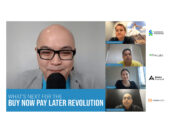Are you struggling to pay off your student debt loans amid rising interest rates and increasing financial insecurity? Paying off debt can prove overwhelmingly stressful, especially if you spend uncontrollably and struggle to control your urges.
Millions of Americans struggle to pay off their student loans, home mortgages, auto loans and credit card bills amid burgeoning inflation and heightening costs of living. Accumulating debt is easier but paying it off can prove immensely challenging. Most people feel imprisoned by their debt, unable to chase their financial goals like homeownership and struggling to enjoy their present life quality.
Read on to explore practical tips that will help you pay off your debt with a pragmatic strategy.
1. Devise a Strategy to Tackle your Debt
There’s a wide variety of strategies that help people pay off their debt with realistically manageable installments and timelines. Debt consolidation is the most common strategy, and borrowers can explore multiple avenues like a home equity loan, a personal loan or a credit card.
Borrowers can also explore refinancing options through federal and private lenders, especially viable for home loans and student debt. Individuals who do not want to consolidate or refinance their debt can explore other strategies that make payments more manageable. For instance, the avalanche method involves prioritizing large debts to save money on interest payments.
The snowball method is another strategy that focuses on paying off minor debts first and gradually working towards larger payments. Whichever method or strategy you choose, it is important to cut back on unnecessary expenses and adopt a minimalist lifestyle until you’re debt-free.

image via freepik
2. Cut Back on Unnecessary Expenses
We all have guilty pleasures and indulgences that tempt us to spend a huge amount of our monthly income, leaving us with the guilt of making unwise spending decisions. Some people like to splurge on luxury goods and designer accessories, while others end up spending hundreds of dollars at fancy casinos and high-end restaurants.
Suppose you love attending themed casino nights and playing slots at casinos. In that case, consider finding a more mindful avenue to enjoy your hobby, such as live casino slots, which can also be played for free. Likewise, if you love buying designer goods, consider opting for thrift items or vintage finds.
There’s always a budget-friendly alternative for every financially draining activity or hobby, be it traveling, collecting art or yachting.
3. Pick up a Side Hustle
Are you struggling to pay off your debt and manage day-to-day expenses on your current income? In that case, consider starting a side hustle to establish an additional income stream. There are multiple ways to go about this. For instance, you can get a part-time job using your skills to serve businesses remotely.
Homeowners can rent out a room or multiple rooms within their homes to establish a passive income stream, putting the rental income towards their monthly debt payments. An extra income stream will make debt management incredibly easier and faster.
4. Challenge yourself to No-Spend Days
Have you ever had a no-spend day where you go through the entire day without spending a single cent? It may seem challenging, but once you get started you realize that we need not spend so much money to manage our day-to-day affairs. For instance, make your morning coffee, breakfast and lunch at home instead of stopping by the local coffee shop and having lunch at a restaurant.
Likewise, you can walk or cycle to work instead of taking the bus or calling an Uber and preparing dinner at home instead of ordering takeout. If you’re planning to go out with friends, invite them over for a potluck feast to save money.

image via Unsplash
Final Thoughts
Adopting a minimalist lifestyle will help you reduce your expenses and allocate more of your income toward paying off your debt. A minimalist lifestyle will also help you cut back on unhealthy habits, like eating out, spending huge amounts on unnecessary items, and relying on materialistic ways to find happiness. This change will help you develop a debt-free and wholesome lifestyle.
Featured image credit: Freepik








